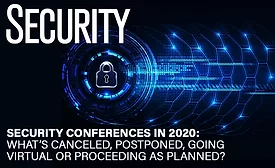Home » information security
Articles Tagged with ''information security''
Fugue Survey Finds Widespread Concern Over Cloud Security Risks during the COVID-19 Crisis
84% of IT professionals are worried about ensuring the security of cloud environments during the rapid transition to 100% distributed teams
April 13, 2020
Sign-up to receive top management & result-driven techniques in the industry.
Join over 20,000+ industry leaders who receive our premium content.
SIGN UP TODAY!Copyright ©2026. All Rights Reserved BNP Media.
Design, CMS, Hosting & Web Development :: ePublishing











